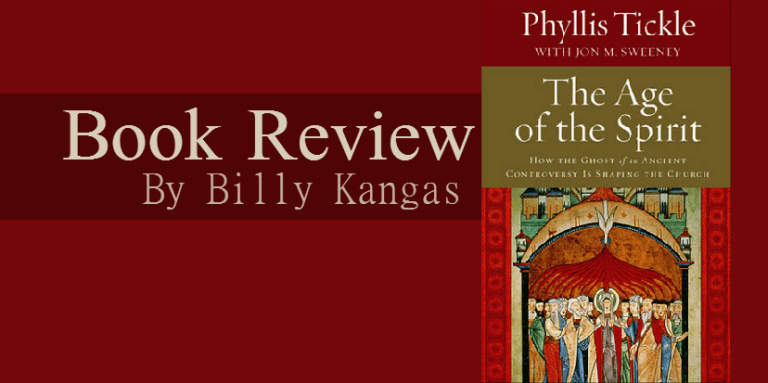Over the weekend I read through Phyllis Tickle’s new book The Age of the Spirit. For those who don’t know Tickle, she is considered by many to be the godmother of the emergent church movement. She has traveled the country preaching that the church is in the midst of a new epoch which she has called “The Great Emergence.” This book is a continuation and deepening of her previous work on this subject. In this book Tickle traces seeks to look back at church history to try to make sense of where we are today.
This is where the book shines.
Tickle manages to paint a picture of the church’s 2000 year theological history which is both engaging and educational. We are introduced to the Christological controversies that formed the landscape of early Christianity. We are led through the political, social, and theological hallmarks of the filioque controversy. We are introduced to medieval mystics and renegade sectarians. We are drawn into the story of how a small group of American Protestants began a Pentecostal movement that has shaken the world.
I loved it.
Even as someone who has studied this history deeply, I found that I found myself entertained and excited at every page turn. This book shines as a brief overview of some key chapters in the history of the church.
Where the book struggles is in its attempt to be prophetic. Tickle has been writing about the changing tides in Christianity for the better part of a decade. While I have personally found many of the ways that she explains things to be helpful conceptual foils, there is a tendency to put too much emphasis on these pedagogical tools. I feel that this happens in this book when Tickle attempts to articulate the epoch’s of history into ages. This quasi-dispensationalist approach is borrowed from Joachim of Fiore. She describes his theory in the following words.
Joachim… determined that the very structure of the world, its history, and God’s way of working in it would move through these three stages:
- world had seen the Age of the Father, which Joachim identified with the Old Testament: its teachings, its ways of understanding God, and God’s ways of interacting with the creation. In the words of Joachim, this first period was a time when human beings were like “slaves,” an era “ascribed to the Father, who is the author of all things.” The first era concluded at the time of Christ.
- Then came the Age of the Son, born in the era of the New Testament, and marked by the birth of God in human form and the growth of the church. Christ is he “who has been esteemed worthy to share our mud.” This was the era of human beings as “sons” not “slaves,” and was waning, Joachim said, in his own day.
- Emerging, then, was the Age of the Spirit, dawning soon, he wrote, and a time when humankind would relate primarily to the third member of the Trinity. this would be a moment marked by a decreased importance in ecclesial structures, sacraments, creeds, and clergy, when all people would begin to relate more directly “as friends” to the Divine. Joachim saw the seed of this idea in the imagination of St. Paul, quoting 2 Corinthians 3:17, “Now the Lord is the Spirit, and where the Spirit of the Lord is, there is freedom.”
Tickle takes this idea and runs with it. She sees the future of the Church as radically different. An age of the Spirit disconnected from traditional Ecclesiology and Sacramentality. I don’t like this theory much. The Church is always changing, yes! But it does not do it to move into new ages or dispensations, but it changes so that it might remain the same. I do not believe that God is going to discard the life of the Church or the Sacraments because I believe that the Church and the Sacraments are the seeds of God’s life in this world. As we move forward I believe these seeds will not have a decreased importance in what God is doing, but will grow.
All in all the book is a good read for the history, but I really think Tickle has given far too much room to Joachim of Fiore and her own speculative theories about the future of Christianity. My recommendation would be to read the book for what she has to say about the past, but don’t give too much attention to what she says about the future.













